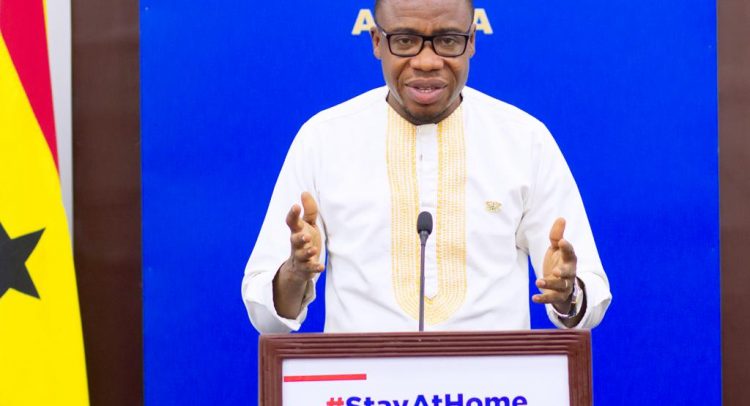Dr Da Costa Aboagye
Following the Minister of Information’s call to engage the media in the national discourse while the virus remains in the world’s ecosystem, on Friday 22nd May 2020, Dr Da Costa Aboagye, the leader of the national risk communication and social mobilisation talked about the institutionalisation of the control and preventive measures whilst living with Covid-19 in safety.
Appearing on JoyFM‘s Super Morning show Dr Da Costa Aboagye discussed with host Kojo Yankson that until a cure is found for the virus, the preventive and control measures will continue to guide the “new normal” in the fight against the virus in Ghana.
Giving details of the president’s control and preventive measures strategy, Dr Da Costa said one of the key control measures initiated by the president was to limit and stop the importation of cases. This, he said started with the closure of borders and subsequent mandatory quarantined of about 1,030 passengers.
Dr Da Costa explained that, out of the 1030 passengers, 115 persons tested positive and according to him, the timely decision by President Akufo-Addo to put mandatory quarantine control measures in place helped the country to avoid a catastrophic potential spread and overwhelming of health facilities.
On general preventive measures, he noted that in the absence of a vaccine, the country’s guiding principles after easing restrictions would be based on hand washing, social distancing and wearing a mask. Organizations may also be asked to put specific protocols in place in addition to the general preventive measures, he noted.
“Social mobilisation engagements with media, faith-based organisations, traditional leaders and other stakeholders will help shape the general and specific protocols on preventive measures, implementation, enforcement, contingencies, public health education, monitoring and evaluation, ” he touted.
Finally, Dr Da Costa noted that an all government approach is enshrined in science under the “determinants of health” and “the principles of health in all policies” where health is part of policies in the economic, transport, agriculture, security, environment and communication agencies.
This he said helps when taking a holistic assessment for decision making.


